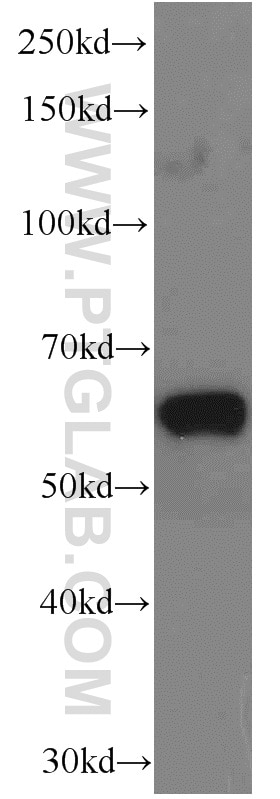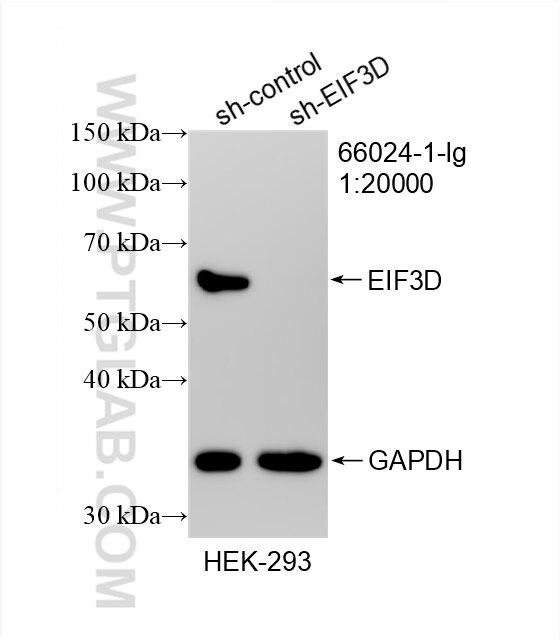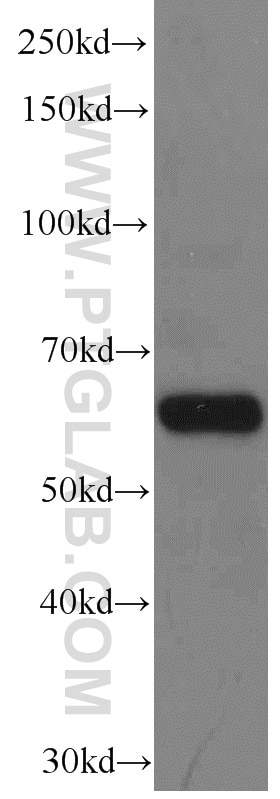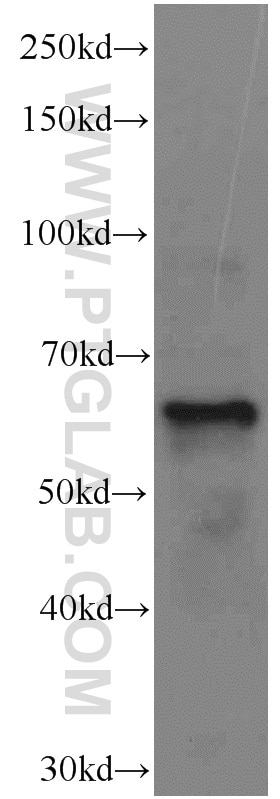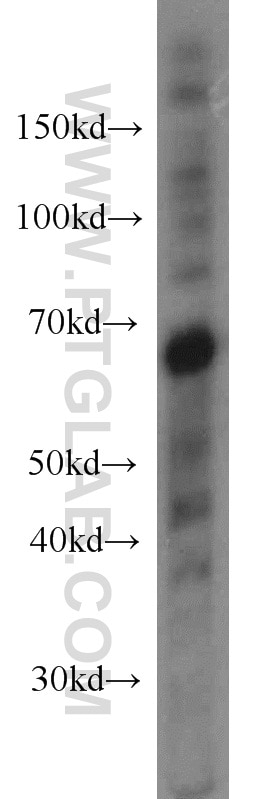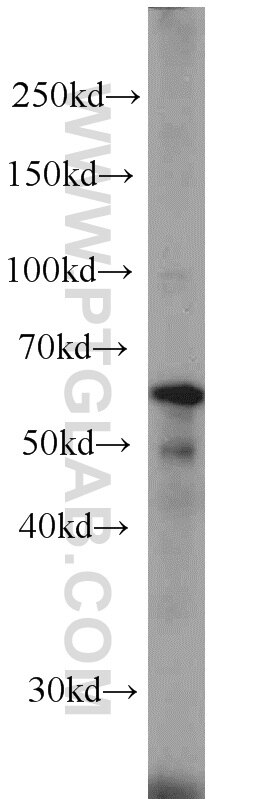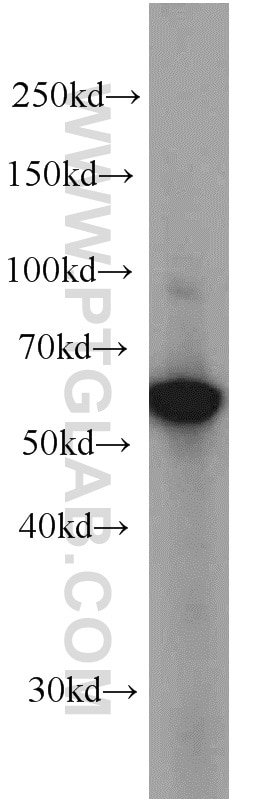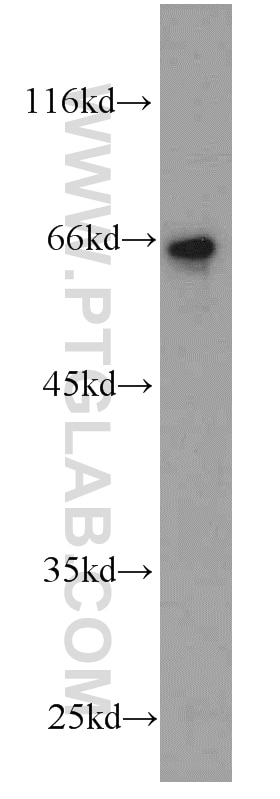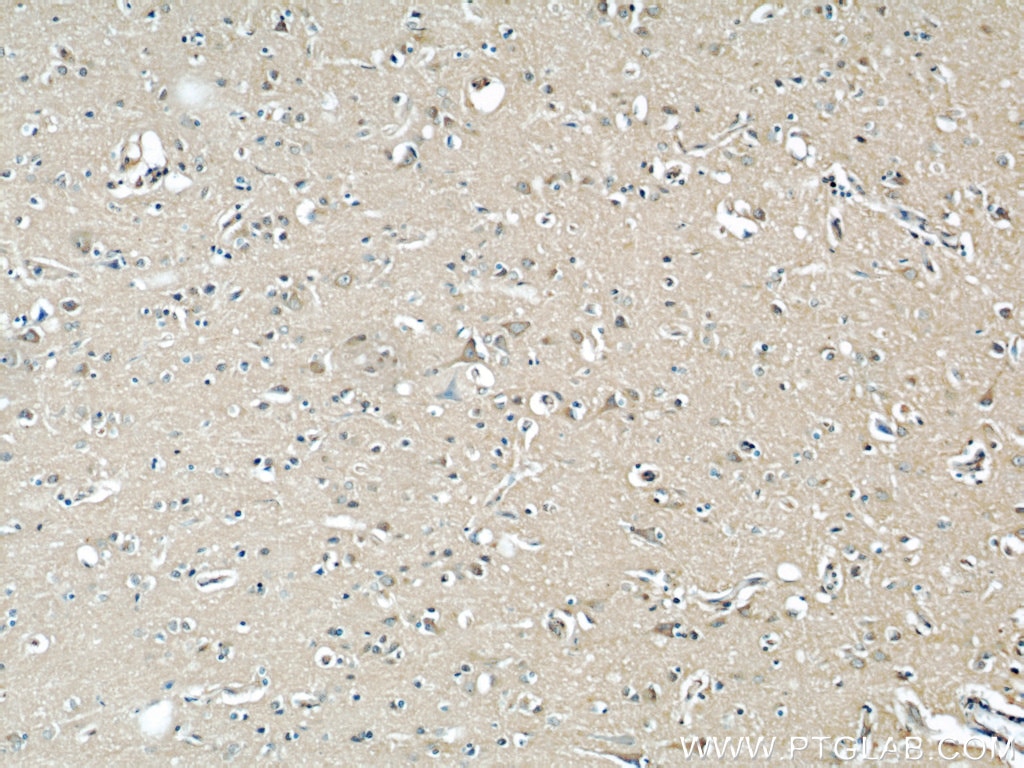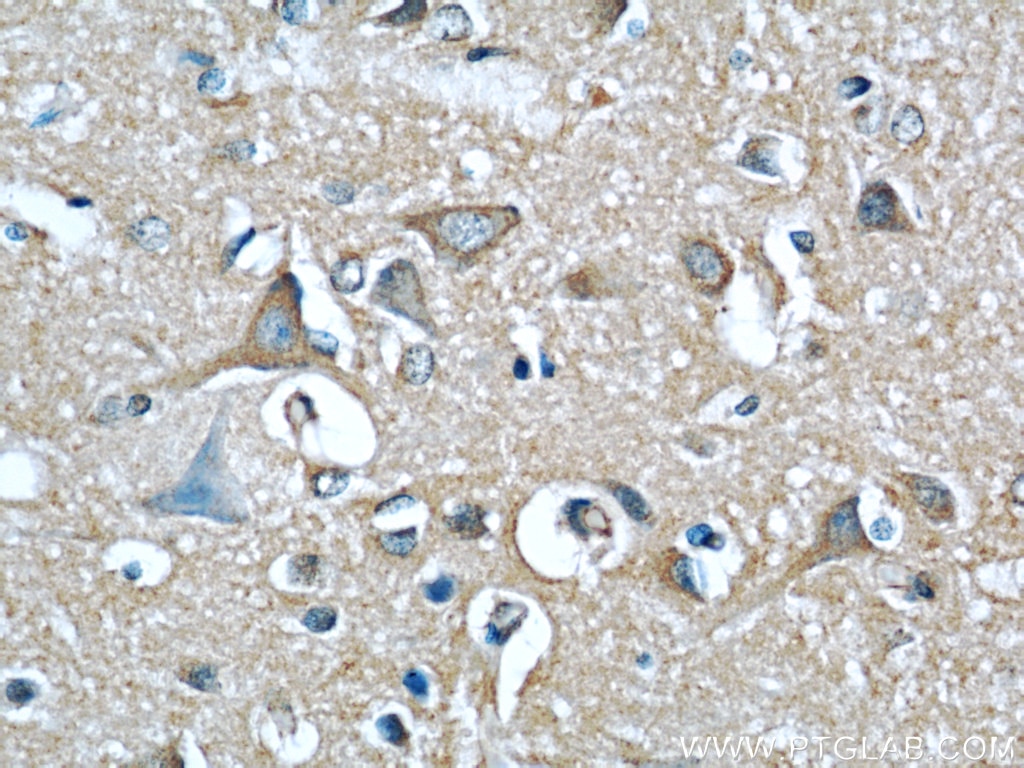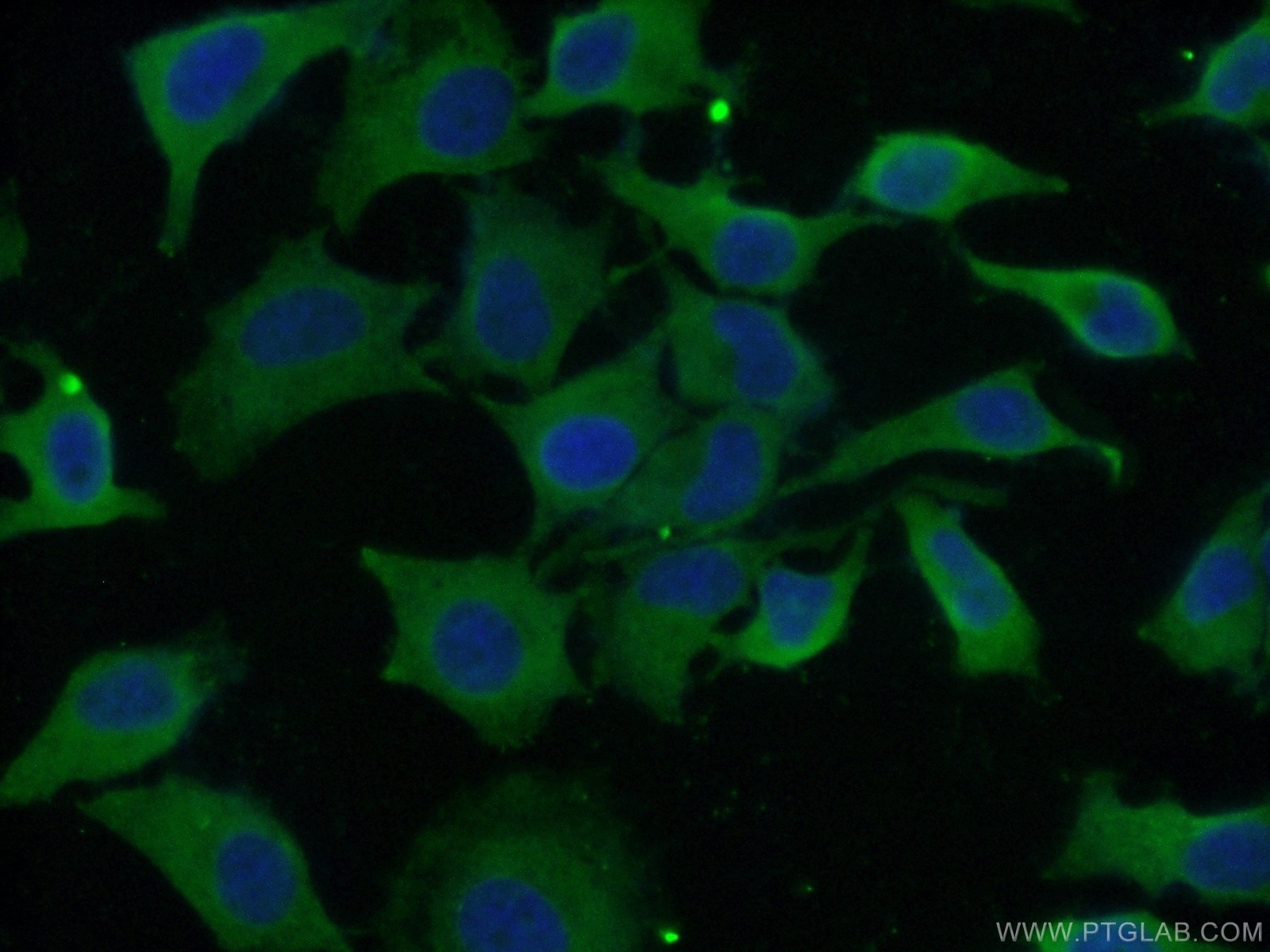Validation Data Gallery
Tested Applications
Recommended dilution
| Application | Dilution |
|---|---|
| It is recommended that this reagent should be titrated in each testing system to obtain optimal results. | |
Product Information
66024-1-PBS targets EIF3D in WB, IHC, IF/ICC, Indirect ELISA applications and shows reactivity with human, mouse, rat samples.
| Tested Reactivity | human, mouse, rat |
| Host / Isotype | Mouse / IgG2b |
| Class | Monoclonal |
| Type | Antibody |
| Immunogen |
CatNo: Ag18092 Product name: Recombinant human EIF3D protein Source: e coli.-derived, PET28a Tag: 6*His Domain: 323-531 aa of BC000328 Sequence: FSQQCLRMGKERYNFPNPNPFVEDDMDKNEIASVAYRYRRWKLGDDIDLIVRCEHDGVMTGANGEVSFINIKTLNEWDSRHCNGVDWRQKLDSQRGAVIATELKNNSYKLARWTCCALLAGSEYLKLGYVSRYHVKDSSRHVILGTQQFKPNEFASQINLSVENAWGILRCVIDICMKLEEGKYLILKDPNKQVIRVYSLPDGTFSSDE 相同性解析による交差性が予測される生物種 |
| Full Name | eukaryotic translation initiation factor 3, subunit D |
| Calculated molecular weight | 66 kDa |
| Observed molecular weight | 66 kDa |
| GenBank accession number | BC000328 |
| Gene Symbol | EIF3D |
| Gene ID (NCBI) | 8664 |
| RRID | AB_11042451 |
| Conjugate | Unconjugated |
| Form | |
| Form | Liquid |
| Purification Method | Protein A purification |
| UNIPROT ID | O15371 |
| Storage Buffer | PBS only{{ptg:BufferTemp}}7.3 |
| Storage Conditions | Store at -80°C. |
Background Information
The mammalian translation initiation factor 3 (eIF3), is a multiprotein complex of ~600 kDa that binds to the 40 S ribosome and promotes the binding of methionyl-tRNAi and mRNA. The EIF3S7(p66) is the major RNA binding subunit in this complex. Human eIF3-p66 shares 64% sequence identity with a hypothetical Caenorhabditis elegans protein, presumably the p66 homolog. Deletion analyses of recombinant derivatives of eIF3-p66 show that the RNA-binding domain lies within an N-terminal 71-amino acid region rich in lysine and arginine.

